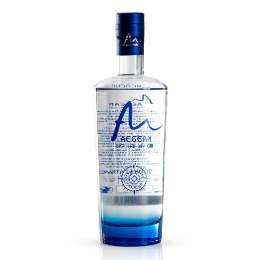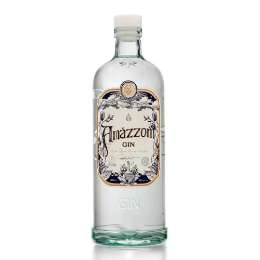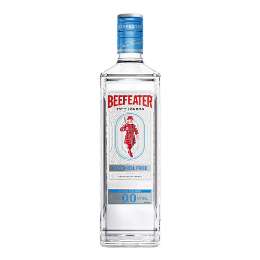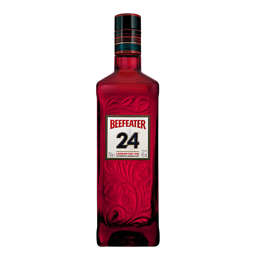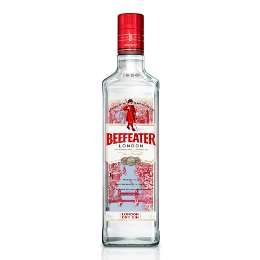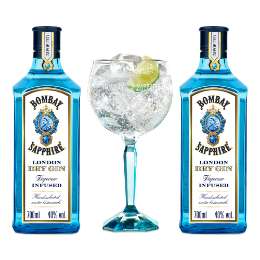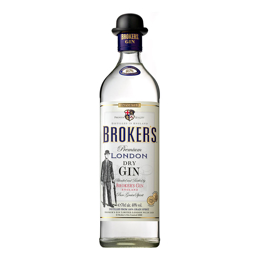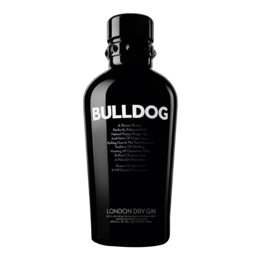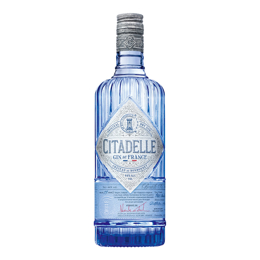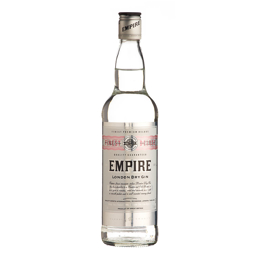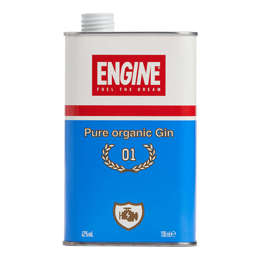Gin
Do you prefer London Dry, Flavored, or Japanese Gin gin? Whatever you're looking for, find it here! Choose between our countless labels.
Aegean Premium Gin 700ml
Amazzoni Gin 700ml
Beefeater 0.0% 700ml
Beefeater 24 Gin 700ml
Beefeater London Dry Gin 700ml
Bombay London Dry Gin 700ml
Bombay Sapphire Gin 700ml
Broker's Gin 700ml
Bulldog Gin 700ml
Citadelle Gin 700ml
Edinburgh Seaside Gin 700ml
Elephant London Dry Gin 500ml
Empire Gin 700ml
Engine Gin 700ml
Etsu Double Orange Gin 700ml
Etsu Double Yuzu Gin 700ml
Etsu Gin 700ml
Finsbury Gin 700ml
Gibson’s Blood Orange Gin 700ml
Gibson’s Pink Gin 700ml
Gin Mare 700ml
Frequently Asked Questions
01What makes gin different from other spirits?
In most cases, gin is not aged, unlike many other drinks, such as tequila, cognac, whiskey and rum. Also, the main flavor parameter of gin is determined by juniper. This is a wild type of cypress, often called scrub cedar.
02What gin options do you have for a beginner?
The typical versions of Beefeater, Bombay, Gordon's and Gibson's, as well as the particularly smooth Greenall's, can easily play the role of a starting point for a journey into the world of gin.
03 How are the taste and aroma of gin described?
Let's not forget that the scientific name of juniper, ie. the main aromatic element of gin is Juniperus communis. The first three letters of the genus Juniperus evolved into the word gin. Thus, the botanical character of juniper dominates this sprit. At the same time, notes of rosemary, cereals, grass, forest fruits and citrus fruits set up its organoleptic profile.
04 Is there any difference in gin, depending on the region of its production?
While the main aroma of gin comes from juniper, its secondary aromas come from other herbal additives, which each distiller decides to use. As the availability of herbs, roots and fruits varies from region to region, so does gin.
05What is the ideal occasion to enjoy gin?
The refreshing gin-based cocktails, as well as the delicate character of this spirit, are the reasons that combine it with mild summer afternoons and evenings. However, gin has also a certain kind of warmth, which makes it suitable even for the winter.
06What differentiates simple gin from dry gin?
The designation "dry" reveals the complete lack of sweeteners during the production of the gin. Any sense of sweetness in dry gin is due solely to its herbal additives. Gins that are not classified as dry are likely to contain even a small amount of sweetener.
07How can I properly store gin to preserve its flavor?
Not a few keep gin in the fridge, especially during the warm season of the year. Therefore, it is not only cooled but protected from light and heat. Of course, storing it in a cool and dry place outside the refrigerator is also advisable.
08Any suggestions on how to best serve gin?
If you want to discover the botanical richness of gin, best enjoy it straight or with a small ice cube. It is, of course, widely known that one of gin's best friends is tonic...
09 What are the most popular cocktails in which gin can be used?
In addition to the famous Gin Tonic, in which it is worth experimenting with the ratio of the two ingredients, the Tom Collins is also famous. It contains soda, gin, lemon juice and sugar syrup, in a ratio of 4:2:1:1.

